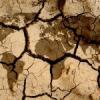 2013shiftingculturesjudges 2013shiftingculturesjudges Jul 2, 2013 01:38 |
This is a cute idea and very well presented. The video is a nice feature and it clear that much thought went into the proposal. Getting young children to think about what is good for the environment is very important. The proposal could be strengthened by addressing how the makers will sustain interest in playing with the toy. Also, is there a way to link the rewards and punishments to actual actions, as opposed to simply self-reports from children? This could also strengthen the proposal.
|
 2013shiftingculturesjudges 2013shiftingculturesjudges Jul 18, 2013 04:20 |
Team followed previous set of suggestions very well.
|
 Mark Capron Aug 14, 2013 06:46 |
The virtual green pet is a game. Yale FES and judges may want to consider a report on using games to educate and change behavior.
Pardee Center Task Force Report, November 2012
Games for a New Climate: Experiencing the Complexity of Future Risks
http://www.bu.edu/pardee/publications-library/2012-archive-2/games-climate-task-force/
November 2012 (110 pages)
ISBN: 978-1-936727-06-3
This report is a product of the Pardee Center Task Force on Games for
a New Climate, which met at Pardee House at Boston University in March
2012. The 12-member Task Force was convened on behalf of the Pardee
Center by Visiting Research Fellow Pablo Suarez in collaboration with
the Red Cross/Red Crescent Climate Centre to “explore the potential of
participatory, game-based processes for accelerating learning,
fostering dialogue, and promoting action through real-world decisions
affecting the longer-range future, with an emphasis on humanitarian
and development work, particularly involving climate risk management.”
Compiled and edited by Janot Mendler de Suarez, Pablo Suarez and
Carina Bachofen, the report includes contributions from all of the
Task Force members and provides a detailed exploration of the current
and potential ways in which games can be used to help a variety of
stakeholders – including subsistence farmers, humanitarian workers,
scientists, policymakers, and donors – to both understand and
experience the difficulty and risks involved related to
decision-making in a complex and uncertain future.
The dozen Task Force experts who contributed to the report represent
academic institutions, humanitarian organization, other
non-governmental organizations, and game design firms with backgrounds
ranging from climate modeling and anthropology to community-level
disaster management and national and global policymaking as well as
game design.
|
